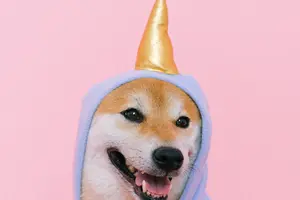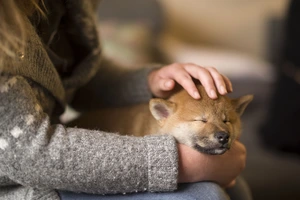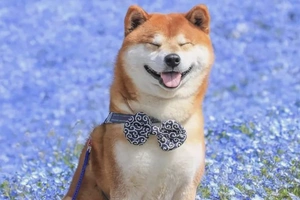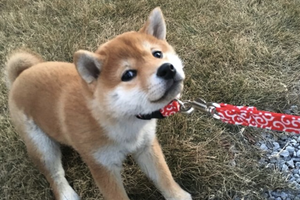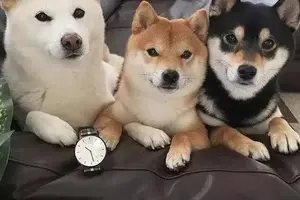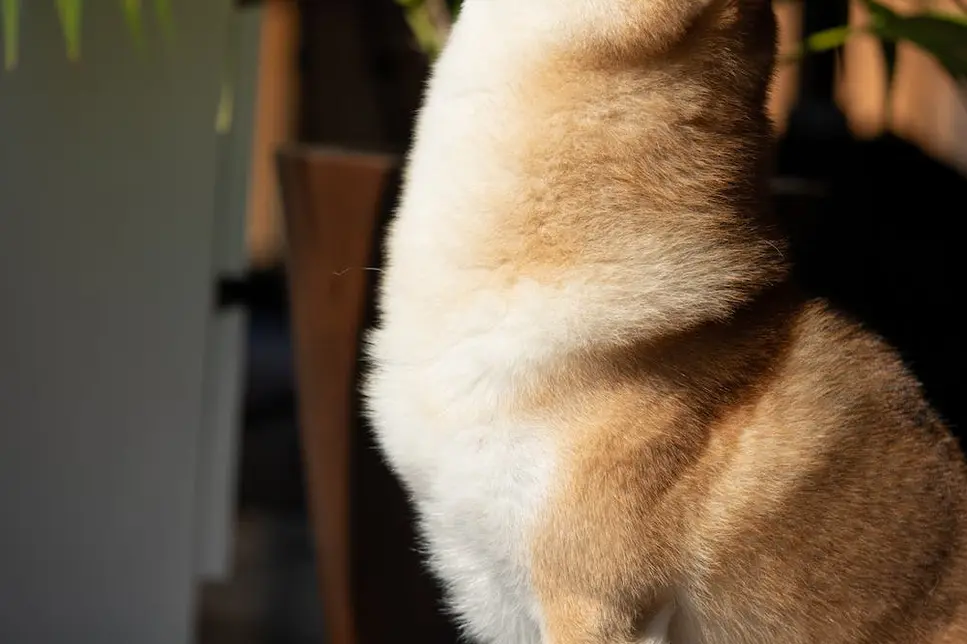
Before adopting any pet, it’s important to do your research and make an informed decision. Shiba Inus are a popular breed of dog, known for their loyalty, intelligence, and unique personality. However, like any breed, they come with their own set of pros and cons. In this article, we’ll explore the 10 things you should consider before adopting a Shiba Inu, so you can determine whether this breed is the right fit for you and your lifestyle.
Pros
-
Loyalty: Shiba Inus are fiercely loyal to their owners and make great companions.
-
Adaptability: Despite their reputation for being stubborn, Shiba Inus are adaptable to different living situations, including apartments and larger homes.
-
Intelligence: Shiba Inus are intelligent dogs and are quick learners when properly trained.
-
Independent: Shiba Inus are independent dogs and don’t require constant attention, making them a good choice for busy pet owners.
-
Cleanliness: Shiba Inus are naturally clean and fastidious dogs, often compared to cats in their grooming habits.
-
Energy Level: Shiba Inus have a moderate energy level and enjoy daily exercise, but are also content to relax at home.
-
Playfulness: Shiba Inus have a playful and curious nature, making them fun and entertaining pets.
-
Size: Shiba Inus are a medium-sized breed, typically weighing between 17-23 pounds, which makes them a good size for both apartment and house living.
-
Long Lifespan: Shiba Inus have a longer lifespan compared to other breeds, often living up to 15 years or more.
-
Distinctive Appearance: Shiba Inus have a distinctive appearance with their fox-like faces and curly tails, making them a visually appealing breed.
While there are many pros to owning a Shiba Inu, it’s important to consider the potential downsides as well.
Cons
-
Stubbornness: Shiba Inus are notoriously stubborn and can be challenging to train, requiring a patient and consistent approach.
-
Barking: Shiba Inus are vocal dogs and can be prone to excessive barking, especially if not properly trained.
-
Aggression: Shiba Inus have a strong prey drive and can be aggressive towards other animals, especially small dogs and cats.
-
Health Issues: Shiba Inus are prone to certain health issues, including allergies, eye problems, and hip dysplasia.
-
Shedding: Shiba Inus have a thick double coat that sheds heavily twice a year, requiring regular brushing and grooming.
-
Escape Artists: Shiba Inus are skilled escape artists and can easily slip out of collars and harnesses, making a secure fence and supervision important.
-
Not Ideal for First-Time Owners: Due to their stubborn and independent nature, Shiba Inus may not be the best choice for first-time dog owners or those looking for an easy-to-train breed.
-
Expensive: Shiba Inus can be expensive to own, with costs associated with quality food, toys, grooming, and veterinary care.
It’s important to carefully consider these potential downsides before deciding whether a Shiba Inu is the right fit for you and your lifestyle.
Training
Training a Shiba Inu can be a challenge due to their stubborn nature, but it’s important to establish consistent rules and boundaries from a young age. Positive reinforcement training techniques, such as clicker training and treats, can be effective in motivating a Shiba Inu to learn. However, it’s important to avoid using punishment or harsh training methods, as this can lead to aggression and mistrust.
Socialization is also important for Shiba Inus, as they can be prone to aggression towards other animals and strangers. Early socialization with people and other dogs can help prevent these behaviors from developing.
It’s important to note that training a Shiba Inu is an ongoing process, and requires patience and consistency. It may take longer to train a Shiba Inu compared to other breeds, but with the right approach, they can become well-behaved and obedient dogs.
Exercise Needs
Shiba Inus have a moderate energy level and require daily exercise to stay healthy and happy. A daily walk or two, combined with playtime and mental stimulation, is usually sufficient to meet their exercise needs.
It’s important to note that Shiba Inus are active dogs and enjoy exploring their surroundings. They can be prone to wandering and may try to escape if not properly supervised or contained. A secure fence or leash is recommended when outside to prevent any accidents or incidents.
It’s also important to avoid over-exercising a Shiba Inu, especially in hot or humid weather. They are prone to overheating, which can lead to serious health issues. It’s important to monitor your Shiba Inu’s activity levels and adjust accordingly to prevent any health problems.
Overall, Shiba Inus require moderate exercise and can adapt to different living situations, making them a good choice for both apartment and house living.
Grooming
Shiba Inus have a thick double coat that sheds heavily twice a year, known as “blowing their coat.” During this time, daily brushing and grooming is necessary to remove loose fur and prevent matting. Outside of shedding season, weekly brushing is usually sufficient to maintain their coat.
It’s important to note that Shiba Inus are clean dogs and groom themselves like cats. They rarely need a bath and excessive bathing can strip away their natural oils, leading to skin problems. Instead, spot cleaning with a damp cloth or pet-friendly wipes is recommended.
Other grooming needs for Shiba Inus include regular nail trimming, ear cleaning, and dental care. Professional grooming services may also be necessary for trimming and shaping their coat.
Overall, grooming a Shiba Inu requires regular maintenance and attention to keep them looking and feeling their best.
Health Concerns
Shiba Inus are generally healthy dogs, but like any breed, they can be prone to certain health issues. Some of the most common health concerns for Shiba Inus include:
-
Allergies: Shiba Inus can be prone to allergies, which can cause skin irritation, itching, and hair loss.
-
Eye Problems: Shiba Inus are prone to certain eye problems, including cataracts and progressive retinal atrophy (PRA), which can lead to blindness.
-
Hip Dysplasia: Shiba Inus can be prone to hip dysplasia, a condition where the hip joint doesn’t develop properly, causing pain and mobility issues.
-
Luxating Patella: Shiba Inus can be prone to luxating patella, a condition where the kneecap dislocates from its normal position, causing pain and limping.
-
MVD: Shiba Inus can be prone to mitral valve disease (MVD), a heart condition that can lead to heart failure.
Regular veterinary check-ups and preventative care, such as vaccinations and parasite control, can help prevent and detect these health issues early on. It’s also important to feed your Shiba Inu a high-quality diet and provide regular exercise to maintain their overall health and well-being.
It’s important to consider the potential health risks associated with owning a Shiba Inu before making the commitment to adopt one. Veterinary care can be expensive, and some health issues can require ongoing treatment and care.
Costs
Owning a Shiba Inu can be expensive, with costs associated with food, toys, grooming, and veterinary care. Some of the most common costs to consider include:
-
Food: Shiba Inus require a high-quality diet to maintain their health and well-being. The cost of food can vary depending on the brand and quality.
-
Toys and Accessories: Shiba Inus are playful dogs and require toys and accessories to keep them entertained and engaged.
-
Grooming: Shiba Inus require regular grooming, including brushing, nail trimming, and ear cleaning. Professional grooming services may also be necessary.
-
Veterinary Care: Regular veterinary check-ups, vaccinations, and parasite control are necessary to maintain a Shiba Inu’s health. In the event of an illness or injury, veterinary care can be expensive.
It’s important to budget for these costs and have a financial plan in place before adopting a Shiba Inu. Consider the potential costs associated with owning a Shiba Inu and make sure you’re prepared to provide the necessary care and attention they require.
Owning a Shiba Inu can be a rewarding experience, but it’s important to carefully consider the pros and cons before making the commitment. Shiba Inus are loyal, adaptable, and intelligent dogs, but they can also be stubborn, prone to barking, and require regular grooming and exercise.
Before adopting a Shiba Inu, it’s important to consider your lifestyle and whether you have the time, resources, and dedication to provide the necessary care and attention they require. Make sure you’re prepared for the potential costs associated with owning a Shiba Inu, including food, toys, grooming, and veterinary care.
If you’re committed to providing a loving home for a Shiba Inu, they can make wonderful companions and lifelong friends. With proper training, socialization, and care, a Shiba Inu can become a beloved member of your family.

